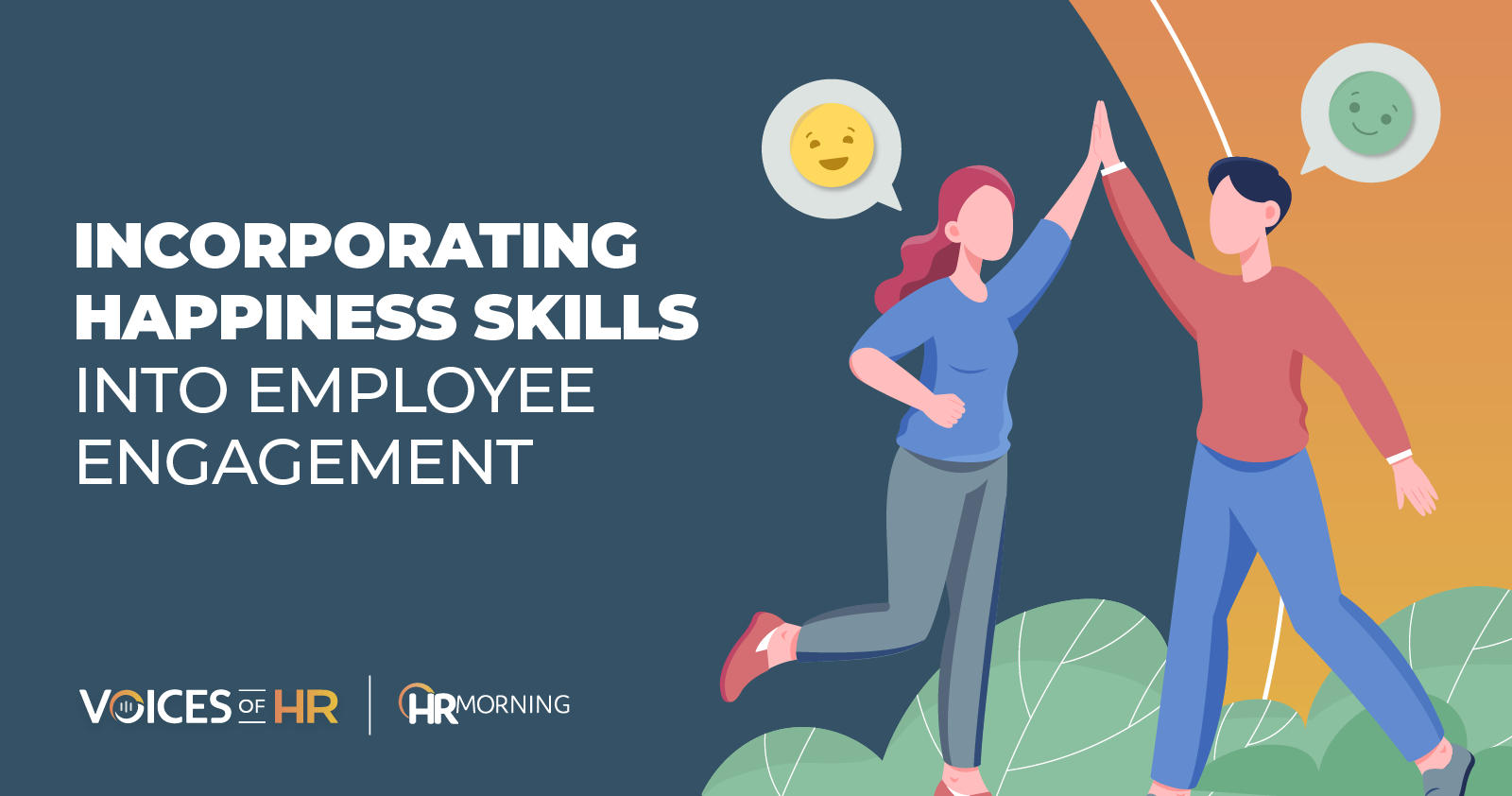Can HR do anything about employee happiness? Expert says ‘yes’ & shares steps to take

Minimizing burnout-related turnover and quiet quitting is still a significant challenge for HR pros. It indicates employee happiness is lacking somehow.
Consultant and science of happiness scholar Rob Dubin has been working closely with HR departments struggling with retention in their organizations, and he shared what he’s learned in a new episode of HRMorning’s podcast “Voices of HR,” titled “The Great Resignation Solution: Empowering Employees With Happiness.”
He said if you’re still laboring to turn the tide of the Great Resignation, step one is recognizing that enhancing compensation and benefits is no longer a fix-all solution – especially because there’s been a shift since the COVID-19 pandemic in the way people view their lives and work.
“So (in) 2021, we had 47 million resignations. (In) 2022 … we had over 50 million. So we have to look in the mirror and say all this money we’ve spent in the last 18 months – all these new benefit packages we trotted out, all these new things we did that HR people said were going to work – did not work,” Dubin said.
‘Happiness skills can be taught’
Step two: Make a commitment to employee engagement. Dubin noted that there are ample training opportunities for promoting happiness skills in your culture, such as building relationships with team members, being a part of something bigger than oneself, being present, savoring happy moments, etc.
“If you can teach your people how to be better at being happy, you’re leveraging all that money that you’re already spending on compensation and benefits and better culture and employee recognition and awards programs,” he said. “If you’re giving your employees a benefit, and you ask them as part of the happiness training what’s something they’re grateful (for), now they focus on the fact they’re grateful that you’ve given them that benefit, and it increases the value of the benefit to them.”
And if your CEO and other leaders follow that up by demonstrating that they’re committed to happiness, that can become contagious.
In addition, Dubin’s an advocate for the four-day workweek because of data that shows workers can be even more productive in 32 hours than they are in 40.

